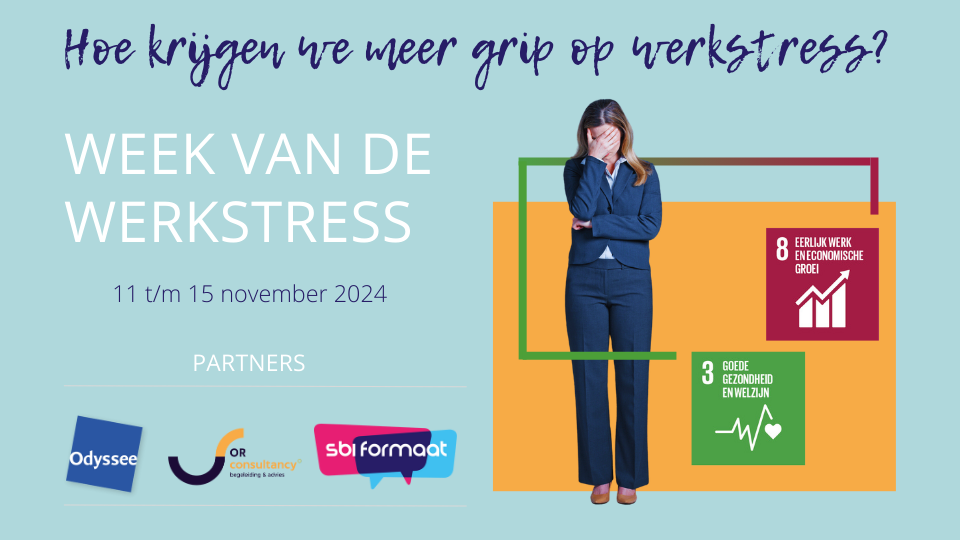Background EWC
1) What are the advantages to an EWC?
The most important raison d’ être of an EWC is the possibility to influence company policy at the level that this policy’s being devised. This is in order to prevent the local/national management from confronting the works council with a decision that has already been made at a higher level in the company, which cancels out worker participation. If an EWC runs smoothly, European workers are part of the change processes that continuously take place in multinationals.
What is more, the EWC is a good source of information for the (central) works council. On the one hand the EWC receives information from top management directly, and on the other hand the exchange between EWC members from the different countries seems to be very useful. For instance, sometimes sites in different countries are pitted against each other. And it is possible to find out from other worker representatives how they tackle certain matters.
Moreover, in the EWC one gains a better overview of the company as a whole and the position of one’s own country and site within that whole. Also, the informal contact with the top management of the company can be useful.
The management often appreciates being able to get direct information from the shop floor, without it having been through all types of filters (levels of management). Furthermore, the EWC improves involvement in the company and communication. Finally, an efficient European Works Council can help management make the right decisions and implement policy.
2) What are the EWC’s most important rights?
The most important rights of the European Works Council are Information and Consultation. European Works Councils can discuss translational themes (18) at the highest European level in the company and give their opinion. However the EWC’s opinion is non-binding. The company is obliged to follow the procedure properly and provide the EWC with information in a timely fashion and the necessary time to come up with an opinion.
3) When should a company have an EWC?
A company which has 1000 workers inEuropeand at least two countries with minimum 150 workers ought to have an EWC. ‘Europe’ are the Member States of the European Union in addition to the countries of the European Economic Area (4). Incidentally, it does not matter where the parent company is located. Non-European (Japanese, US, etc.) companies that are active inEuropeand fulfil the requirements also have to have an EWC.
4) What countries can belong to the EWC?
The European Directive is valid for all Member States of the European Union (The Netherlands; France; United Kingdom; Belgium; Luxemburg; Spain; Portugal; Greece; Italy; Finland; Sweden; Cyprus; Malta; the Czech Republic; Slovakia; Slovenia; Romania; Poland; Bulgaria; the Republic of Ireland; Hungary; Latvia; Lithuania; Denmark, Croatia and Austria) and the European Economic Area (EEA) (Lichtenstein; Iceland and Norway). Workers from the countries within the group where the company is active have to be represented in the SNB (10) and the EWC.
One can arrange to have other countries written into the EWC agreement, for example Switzerland.
5) What are the specific characteristics of a European Works Council in a European company?
A European Works Council of a European Company (SE) is different from a ‘standard’ EWC in one important matter: in an SE, there is the possibility for co-determination in addition to information and consultation in the EWC. Co-determination at the level of the supervisory body means that EWC can appoint members to the Supervisory Board / Board of Directors. This has to be spelled out in the EWC agreement. The EWC can also waive this right.
Futhermore, in the Directive, the consultation process is more firmly anchored for the EWC within the SE. The purpose of consultation is “to reach agreement”.
Legislation
6) What legislation is relevant to the EWC?
The EU Directive underpins the European Works Council. The first EWC Directive, 94/45EC, goes back to 1994. A recast Directive, 2009/38/EC, was published in May 2009.
A European Directive has to be transposed into national legislation. So there is EWC legislation, a total of 30 laws, in every Member Stateof the European Union and the European Economic Area (4). The 30 laws all follow the Directive and really resemble one another. In The Netherlands the Law on European Works Councils (“WEOR”) has been in effect since 1997.
The EWC Directive was revised in 2009. The 30 countries have until June 2011 to adjust their legislation to it.
The EWC agreement which workers and employers sign together is the basis for the work in the EWC. This agreement also falls under the legislative framework of one of the Member States (7). It is important for a member of the SNB (10) or the EWC to be aware of the legislative provisions of the country that their agreement falls under.
Finally each SNB (10) or EWC member’s own national legislation is important. Ppersonal rights of the EWC member are enshrined in it, for instance protection. You can also find out how a representative from your country is electred or designated.
7) What legislation applies to my EWC?
An EWC agreement is always signed under the EWC legislation of a specific country. This is firstly the country where the parent company is established. Of course the parent company might well be established in one of the countries where the EU Directive is not applicable (4). In this case the parent company appoints a representative from a country that belongs to the EU/EEA (4). If that is not possible, then the legislation of the Member States with the most amount of workers shall apply.
8) What are the subsidiary requirements?
In order to set up an EWC, the worker representatives have to conclude a customised agreement with the company’s central management. If an agreement is not struck within 3 years, if management refuses to conduct negotiations or if both parties agree to the effect, the company reverts to the subsidiary requirements of the legislation applicable to that company (6). That is why the subsidiary requirements are also called a ‘fallback scheme’. During (re-)negotiations both parties always keep the subsidiary requirements in mind: this is what they will get should all else fail. As soon as there agreement, the subsidiary requirements no longer are relevant to the EWC.
Setting up an EWC
9) How does one set up an EWC?
Both the employer and the workers can take the initiative to set up an EWC. If it is the workers who decide to set one up, then no fewer than one hundred workers or their representatives in at least two companies or sites in minimum two Member States must submit a written request to that effect. The worker representatives can address the request directly to the company’s central management or submit it to their own management. In the latter case the request has to be passed on to the central management and the applicant must be kept abreast of developments.
In order to set up an EWC workers and employers have to conclude an EWC agreement. European worker representatives form Special Negotiating Body, the SNB. If an agreement is not reached within three years, or if the employer refuses to conduct negotiations, then an EWC comes about in accordance with the subsidiary requirements (8) set out in EWC law.
10) What is an SNB?
In order to set up an EWC workers and employers have to conclude an EWC agreement. European worker representatives form the Special Negotiating Body, the SNB. The SNB is composed according to the distribution key from the EWC law of the country that is applicable to the EWC (7).
Operation of the EWC
11) How an EWC operates in practice
Most EWCs convene once or twice a year with the highest management level of the company inEurope. If there are important developments within the company between the (twice-)yearly meetings, additional meetings are organised (19).
The EWC can deliver an opinion during or after a meeting.
An EWC usually has a Select Committee: a number of representatives who look after the EWC’s everyday business, coordinate the work and are the management’s primary speaking partners. The Select Committee sometimes holds additional meetings during the year.
12) What themes does the EWC deal with?
The EWC deals with the development of the company and its forecasts. In the Directive’s subsidiary requirements, a considerable amount of themes are mentioned for the EWC to deal with, which are taken up in most agreements and even completed:
the structure, economic and financial situation, the probable development of the business and of production and sales, the situation and probable trend of employment, investments, and substantial changes concerning organization, introduction of new working methods or production processes, transfers of production, mergers, cut-backs or closures of undertakings, establishments or important parts thereof, and collective redundancies.
Themes that EWCs add to this list are for example: Health and Safety, Equal Opportunities and European HR Policy. In practice it is mostly economic themes that dominate the agenda
EWC themes have to be transnational (18).
13) When is a theme transnational?
The EWC Diretive and the legislation is unfortunately not very clear on this. At any rate there is agreement about the fact that themes affecting the whole company or at least two sites in two Member States are transnational. When one looks at the Directive’s preamble, one sees that decisions taken in one country that have an affect on workers in another country are also transnational. This provision is not in the body text of the Directive and is missing from a lot of EWC agreements; thus, the concept of “translational” is often discussed in EWCs.
14) We only meet twice a year. What are the rights of the EWC in the event that something happens between two meetings?
Almost every EWC has the possibility to convene additional meetings in the case of extraordinary developments. This meeting can can take place between the management and the EWC plenary, or between the management and the EWC’s Select Committee, either with the EWC members from the relevant countries or not. During or after these meeting the EWC can emit an opinion. In the Directive, the following is understood as being exceptional circumstances: ‘exceptional circumstances… which have a considerable effect on workers’ interests, more particularly in the event of relocation, closure of companie or sites or collective redundancy.’
NB: These are the subsidiary requirements (8) of the EWC law. If you want to know precisely what the righs of your EWC are in this area, consult your agreement. Most EWC have included this provision from the subsidiary requirements in their agreement.
State of play
15) How many EWC’s are there?
According to the most recent estimates there are about 900 EWCs. There could be around 2400 of them, however.
16) How many EWC’s are there under Dutch law?
There are around 50 EWCs under Dutch law.
Practical things
17) Is the EWC entitled to training?
There is no right to training in the 1994 Directive. Exceptionally, The Netherlands has written in the right to training in its own Law on European Works Councils (“WEOR”, (6)), but this right is only valid for every Dutch EWC member. The right to training is now enshrined in the 2009 EWC Directive: nevertheless, it will still be governed by the EWC agreement until the Directive is transposed into national legislation by 2011. In the EWCs of companies that are originally Dutch, the right to training is frequently spelled out in the agreement (there is a right to training in 62% of Dutch agreement as opposed to 28% of all EWCs). Furthermore, individual EWC members are often entitled to language classes in accordance with their agreement.
18) Is my SNB or EWC entitled to the assistence of an expert?
The Law spells out that the SNB can get the assistance of experts. The SNB is entitled to chose these experts. In most national EWC legislation the cost is borne by the company.
In the subsidiary requirements (8) it is also stipulated that the EWC can be supported by a expert of its choice. The cost is also borne by the company. In most national legislation it is stipulated that the company need not pay for more than one expert (sometimes, like in The Netherlands: more than one expert per subject). In the EWC agremeent the workers and the employers in the company have to make arrangements and do not have to adopt the subsidiary requirements (8). Take a look at what the specific rights of your EWC are in your company’s EWC agreement.
19) Am I entitled to interpreting services?
It is stipulated in the subsidiary requirements (8) of the Directive that the company has to pay for interpreting costs. However other arrangements can be made about interpreting in the Agreement. So look out for the (important!) right to interpreters in your own EWC agreement.
20) What is the best way to work with interpreters?
A lot of EWCs use the services of interpreters. The fact of the matter is that there is a multitude of languages in Europe and not everybody is in a position to take part in a meeting in English (French, German, etc.)
| Some tips for working with interpreters*:
Use technical equipment that tallies perfectly with your infrastructure.
*With thanks to Eric Bauwelinck from Mastervoice |
EWC and trade union
21) What is the trade unions’ involvement in the EWC?
European worker participation is a responsibility shared by the national works council and the trade unions. This means that, certainly at the initial stage, intensive cooperation between the two is necessary. In the Recast Directive (2009) (6) it is now explicitly stated that trade unions can be brought in as experts when the EWC is being set up. That way, the fledgeling EWC can make use of trade union knowledge, experience and the broad European network. What is more, it is apparently easier to make contact with other works council/management members in other companies and countries via the trade unions than through compnany worker participation. On top of that trade unions have a lot of knowledge and experience with regard to activities and experiences of other EWC’s in the same sector. This can also be very valuable to the EWC. A company is not an island. Developments in the sector always have an impact on individual companies.
In some European Works Councils a trade union official has a seat on the EWC. The advantage is that the knowledge is ‘in-house’. In several, more Dutch-oriented EWC’s, it is more common to bring in the trade union official as an external expert so that (s)he can take part in most meetings.


